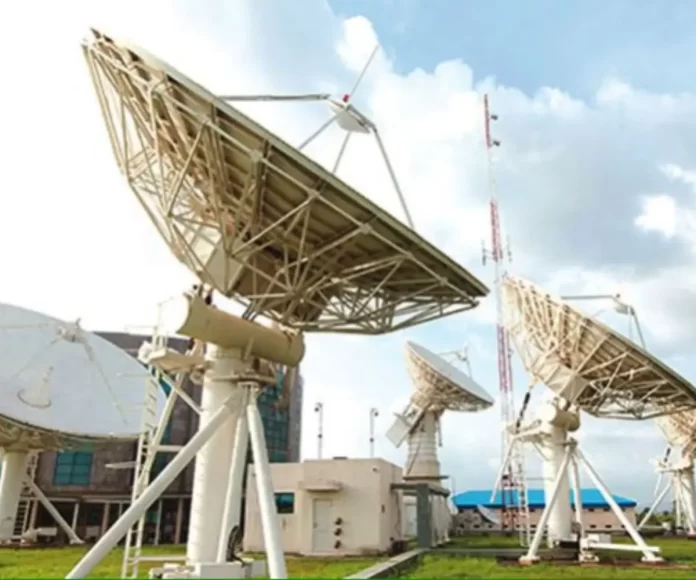The Managing Director and Chief Executive Officer of the Nigeria Communications Satellite, NIGCOMSAT, Engr. James Egerton-Idehen has disclosed that reliable and affordable internet access remains a challenge for many Nigerians.
She disclosed this while delivering a lecture entitled “Championing Innovation: Digital Transformation and Economic Diversification in Nigeria”, on Saturday.
The 20th Herbert Macaulay Memorial lecture and Symposium was organised by the University of Nigeria, Nsukka, UNN, Faculty of Engineering.
The NIGCOMSAT boss stressed that affordable internet access remained a challenge to many Nigerians particularly those in rural areas.
“According to a 2023 report by the Nigerian Communications Commission (NCC), only about 40% of the population has access to broadband internet.
“The current administration has set ambitious targets, as part of the National Broadband Plan, the government agencies like GALAXY and NIGCOMSAT are required to boost Nigeria’s broadband penetration rate to 70% by the end of 2025,” she stated.
She further explained that as part of the National Broadband Plan, they were expected to provide coverage for at least 80% of the population, especially the underserved and unserved populations, by the end of 2027.
The NIGCOMSAT managing director hinted that the goal was to reduce the gap of unconnected Nigerians in rural areas from 61% to less than 20% by 2027.
“Work has commenced through programs like ‘Project 774,’ an initiative by the FMoCIDE (Federal Ministry of Communication, Innovation and DIgital Economy) in coordination with agencies like Galaxy BackBone, USPF (Universal Service Provision Fund), and NITDA (National Information Technology Development Agency) to provide connectivity to each Local Government Area (LGA) in Nigeria.
“There are 774 LGAs in Nigeria. This is crucial as lack of access in rural Nigeria limits the ability of individuals and businesses to fully participate in the digital economy.
“The Renewed Hope Agenda of President Ahmed Bola Tinubu has clearly enumerated its plans to take advantage of the fourth Industrial revolution,” she noted.
She stressed that infrastructure to deliver digital transformation goes beyond broadband networks of internet connectivity.
According to her, “Nigeria is known to have over six submarine fibre cables landing its coastal shores yet very few homes connected to fibre, with the massive bandwidths provided by fibre yet to get to the last mile.
“Other infrastructural elements include data centres and cybersecurity systems. Investing in modernising this infrastructure is essential.
“Nigeria is publicly known to have about 11 data centres, while countries with similar nominal GDP like Egypt and South Africa have 14 and 36 respectively. Provision of infrastructure across the nation, beyond the urban and semi-urban areas remains at the foundation of digital transformation.
“Reliable and affordable internet access remains a challenge for many Nigerians, particularly in rural areas.
“According to a 2023 report by the Nigerian Communications Commission (NCC), only about 40% of the population has access to broadband internet.
“The current administration has set ambitious targets to as part of the National Broadband Plan, the government agencies under the FMoCIDE like GALAXY and NIGCOMSAT are required to boost Nigeria’s broadband penetration rate to 70% by the end of 2025.
“Also, as part of the National Broadband Plan, they are expected to provide coverage for at least 80% of the population, especially the underserved and unserved populations, by the end of 2027.
“The goal is to reduce the gap of unconnected Nigerians in rural areas from 61% to less than 20% by 2027. Work has commenced through programs like ‘Project 774,” she stated.
Share your story or advertise with us: Whatsapp: +2347068606071 Email: info@newspotng.com












